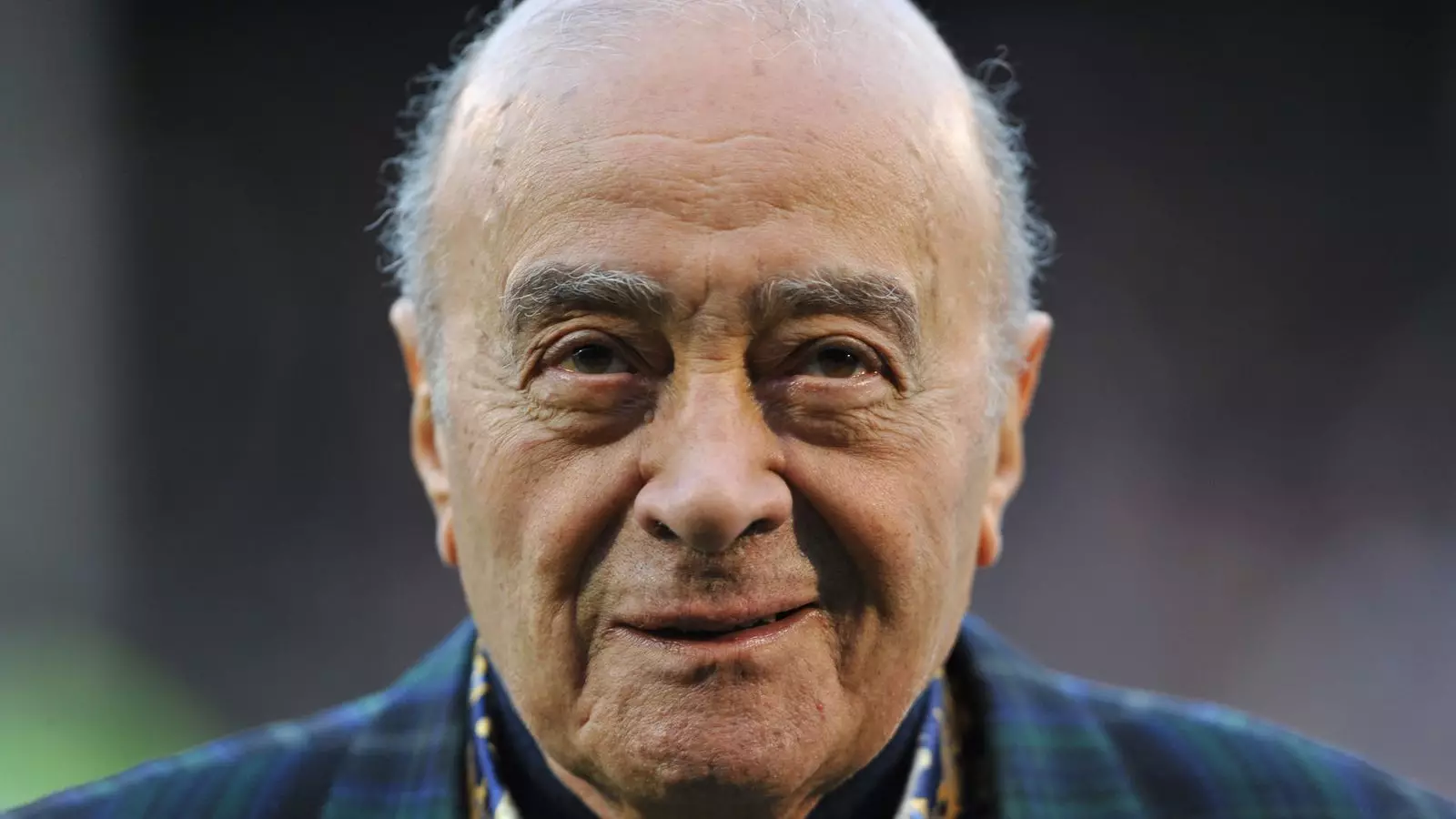The Crown Prosecution Service (CPS) of the United Kingdom has come under scrutiny following revelations that it failed to file charges against Mohamed al Fayed for alleged sexual abuse on two separate occasions. Al Fayed, a prominent businessman and former owner of the Harrods department store, passed away in 2023 at the age of 94. The recent acknowledgment by the CPS has reignited discussions regarding the treatment of sexual abuse allegations, especially those involving high-profile figures. Lawyers representing multiple alleged victims described al Fayed as a “monster,” asserting that his actions spanned several decades, primarily targeting women working in his luxury establishment.
This unfolding narrative raises questions not only about the effectiveness of the CPS but also about the systemic challenges facing victims of sexual abuse in their pursuit of justice. Despite receiving evidence from the Metropolitan Police regarding allegations as far back as 2008 and 2015, the CPS cited a lack of sufficient evidence as the reason for not prosecuting. The legal threshold for taking action—believing there is a “realistic prospect of conviction”—seems to have been a significant barrier, leaving many victims feeling abandoned and unheard.
The resurgence of interest in these allegations can be attributed in part to a recent documentary aired by the BBC, which has spurred over 150 new inquiries. This suggests that the public disclosure of such abusive behaviors can encourage victims to come forward or feel validated in their experiences. However, it also highlights the challenges surrounding public awareness and accountability. The situation exemplifies how institutions may fall short in addressing complaints, especially when they involve individuals in positions of power.
In 2008, charges of indecent assault against a 15-year-old girl emerged, which al Fayed categorically denied. Nevertheless, the CPS chose not to pursue the case, citing conflicting testimonies. Similarly, allegations of rape from 2013 went reinvestigated in 2015 with no outcome leading to prosecution. While the CPS has made statements about reviewing these allegations, the lack of substantiation for legal action conveys a troubling message—one that might discourage other victims from pursuing justice due to fears of similar dismissals.
Dai Davies, a former head of royal protection, has further complicated the narrative surrounding al Fayed by shedding light on his previous warnings about the businessman. His assertions suggest that concerns about al Fayed’s conduct were circulating within influential circles as early as the 1990s. This raises critical questions about the extent to which institutions protect or ignore potential risks, particularly when it involves celebrities or connections to the royal family.
Davies articulates his horror and concern regarding al Fayed’s interactions with Princess Diana and her children, reinforcing the idea that, despite known risks, individuals with influence can evade scrutiny. The gravity of such awareness seems to have been insufficient in preventing potential harm or protecting vulnerable individuals associated with the royal family.
Responses from various organizations point to a growing acknowledgment of the gravity of al Fayed’s alleged actions. While Harrods expressed an “utterly appalled” sentiment regarding the allegations, it simultaneously invited former employees to disclose any similar experiences. This initiative highlights a crucial need for corporations to create safe channels for reporting abuse and reassessing their corporate culture surrounding misconduct.
Fulham FC, another of al Fayed’s former business ventures, echoed sentiments of distress over the numerous allegations against him. Such responses illustrate a broader movement towards accountability, but they also underscore the painful reality that many victims may have been silenced or neglected for too long.
The matter of al Fayed’s legacy is not merely a historical footnote; it raises imperative discussions about how allegations of sexual abuse are handled. As society grapples with the fallout from high-profile cases, the CPS’s failures showcase a critical need for reform. This includes revamping how evidence is assessed and cultivating an environment where victims feel empowered to speak out without fear of dismissal.
Moreover, the case illuminates the essential role of media in unveiling societal injustices. Public awareness can not only amplify those who may have been voiceless but also pressure institutions to act more decisively in the face of serious allegations. While it is unsettling to confront the shadowy past of a figure like Mohamed al Fayed, it is equally necessary if we are to improve the justice system and offer genuine support to victims of abuse in the future.

Leave a Reply